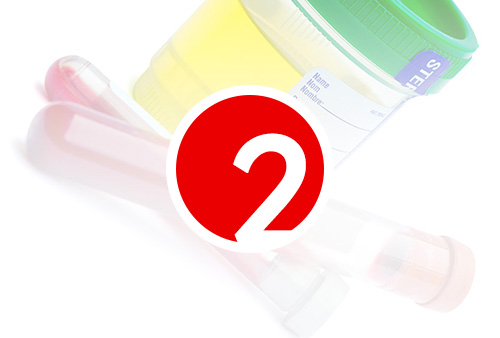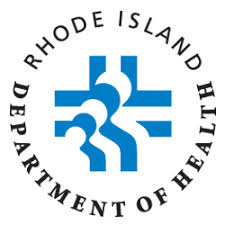Making STI, HIV, and Hepatitis C Testing Easy
Getting a Test is as Easy as 1-2-3
Getting tested regularly for sexually transmitted infections (STIs), HIV, and Hepatitis C is important for sexually active people and their partners. TESTING 1-2-3 puts you in control of your health.

Complete online forms

Go to the lab of your choice

Get results and follow up

TESTING 1-2-3 Important Information
-
It is not for people who have symptoms
-
It is not free
-
Read the Frequently Asked Questions
Learn More From Dr. Philip A. Chan

Medical Director, Rhode Island Department of Health

Frequently Asked Questions
This is a program created by the Rhode Island Department of Health to help Rhode Islanders get tested for HIV, Hepatitis C, and other sexually transmitted infections (STIs). The goal is to make the process as easy as possible.
There are three simple steps:
- On the TESTING 1-2-3 website, Complete the Online Form, and submit electronically.
- TESTING 1-2-3 staff will review the forms that you signed and completed, generate an electronic “lab order” for you, and fax the lab order to the walk-in clinical laboratory that you selected. Once the lab slip has been faxed to the lab, you will receive a confirmation email with a copy of your lab order as an attachment. It can take up to one business day for us to generate your lab order and fax it to the lab. Please wait for a confirmation email from us before going to the lab. If you submit your form on a Friday, on a Saturday, or on a Sunday, your lab slip may not be ready until Monday morning. When you are at the clinical laboratory you may have to provide a blood and/or an urine sample depending on the tests that you selected when filling out our online form.
- Results of the tests will be sent to you via e-mail. If you test positive, a TESTING 1-2-3 staff person will call you and help you find a clinic of your choice to get treated.
Yes. It is common for some people to have STIs, HIV, or Hepatitis C and not be experiencing any symptoms (also called “asymptomatic.”) People who have these diseases and are asymptomatic can still transmit it to others they have sex with. This is why it’s important for sexually active people to get tested at least once a year even if they don’t have any symptoms.
You can be tested for HIV, Hepatitis C, and the following three STIs: chlamydia, gonorrhea, and syphilis.
Yes. This service is only for people who feel healthy and do not have any symptoms. If you do have any symptoms, such as a rash, sore on your genitals, or painful urination, you should see your medical provider or go to one of the participating clinics listed below. If you’ve been exposed to an STI, you should also talk to a medical provider.
The clinical laboratory testing is NOT FREE. The laboratory testing requires insurance which will be billed. People can also pay out-of-pocket if they desire. If you do not have health insurance or cannot afford it, you can go to one of the participating clinics listed below, which all have financial assistance programs to help cover the cost.
Yes, most health insurance companies will cover this service. You may want to contact your health insurance company to see if you will be charged any expenses, such as a co-pay or deductible.
You can pay out of pocket for the testing services. The cost may be hundreds of dollars and will be billed by the clinical laboratory. If you decide to pursue this option, we recommend calling the laboratory first to determine how much you will be charged.
You may be eligible to get free or low-cost care at one of our participating clinical partners listed below. Contact them to determine your eligibility for free or sliding fee scales.
Your privacy is very important. Your information will be accessible to a small number of TESTING 1-2- 3 staff at the Rhode Island Department of Health and The Miriam Hospital/Lifespan (clinical partner). Your personal health information and data are protected by HIPAA. If you do test positive for HIV or a STI, the clinical laboratory is required by law to report it to the Rhode Island Department of Health. With your permission, we will also share your information with a participating clinic so you can be treated if you test positive.
If you are covered under someone else’s health insurance plan, like a parent or spouse, they may receive a “Explanation of Benefits” form in the mail (or on a web portal) from your health insurance company that lists the clinical laboratory testing services you received. If you have concerns about this possibility, contact your health insurance company in advance.
After you provide the clinical laboratory representative with your name, photo ID, and payment information (i.e., health insurance card or self-pay), they will access your lab order that TESTING 1-2-3 staff has faxed to them. Then a phlebotomist will draw blood from your arm using a needle, and you will provide a urine sample (i.e., pee in a plastic cup) privately in a bathroom.
Generally, you can expect results back in 3-5 business days.
If one of your tests comes back with a positive result, you will get a phone call from program staff. Staff will discuss next steps and help navigate you to treatment and care.
You will get an e-mail from program staff letting you know that all your tests are negative.
Anyone (straight, trans, or LGBQ) who has oral, vaginal, or anal sex with or without a condom may be at risk of STIs and should discuss with a medical provider what frequency to be tested. If you are a bisexual or gay man who has multiple sex partners, you should get tested every three months. Anyone who shares injecting drug equipment should get tested at least once a year. If you have been told by a sexual partner that they have tested positive for an STI, you should get tested.
If you have a sexual partner that informs you that he/she has been diagnosed with HIV, syphilis, gonorrhea, or chlamydia, we recommend that you go to see your doctor or go to one of the clinics listed below.
Extra-genital STI testing refers to collecting specimens from a person’s anus and throat and testing the specimen for gonorrhea and chlamydia. The TESTING 1-2-3 service does not include this testing. If you think you were exposed to chlamydia or gonorrhea in your throat or anus we recommend you going to one of the participating clinics:
If you are using your health insurance the coverage, HIV/STI testing is generally covered at least once a year. To be safe, if you want to use the service more frequently by using your health insurance, you should contact your insurer to discuss. If you are paying out of pocket, you can use the service as frequently as you want.
Alexi Almonte, AAlmonte@lifespan.org.
